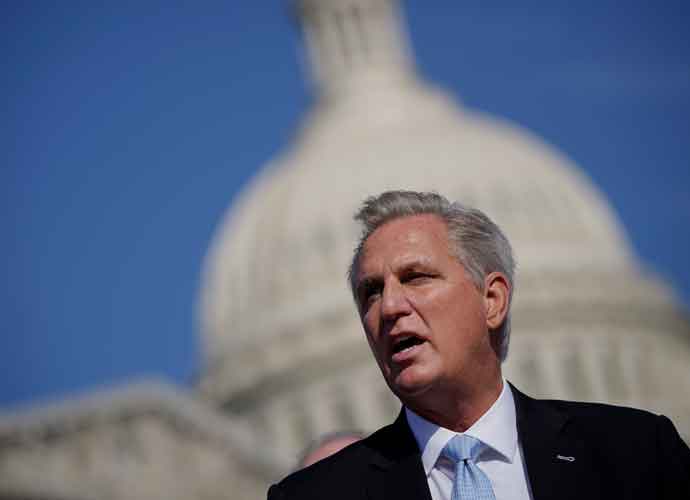House Republicans Rally To Support Trump After Indictment
Republican leaders are showing support for former President Donald Trump following his indictment by a Manhattan grand jury.
House Speaker Kevin McCarthy strongly criticized the indictment, claiming that Manhattan District Attorney Alvin Bragg “weaponized” the justice system in a political attack against Trump. He also threatened to utilize the oversight power of the House of Representatives to hold Bragg “to account.”
Alvin Bragg has irreparably damaged our country in an attempt to interfere in our Presidential election.
As he routinely frees violent criminals to terrorize the public, he weaponized our sacred system of justice against President Donald Trump.
Subscribe to our free weekly newsletter!
A week of political news in your in-box.
We find the news you need to know, so you don't have to.The American people will not…
— Kevin McCarthy (@SpeakerMcCarthy) March 30, 2023
McCarthy credits Trump, in part, for his victory in the Republican speakership battle in January where McCarthy struggled to gain the support of his party in the House.
The second-highest ranked Republican in the House of Representatives, Majority Leader Steve Scalise (R-Louisiana) also leaned into the politics of the situation calling the indictment “outrageous” and a “sham.”
The sham New York indictment of President Donald Trump is one of the clearest examples of extremist Democrats weaponizing government to attack their political opponents.
Outrageous.
— Steve Scalise (@SteveScalise) March 30, 2023
While House GOP support for Trump remains strong, perhaps highlighting the hold that the former president still has over much of the party, Senate Republicans remain less enthusiastic.
Notably, neither Senate Minority Leader Mitch McConnell (R-Kentucky) nor Minority Whip John Thune (R-South Dakota), the two most powerful Republican senators, have commented on the indictment so far. It is unclear if they intend on addressing the situation.
Trump is under investigation for a case related to allegedly ordering his lawyer, Michael Cohen, to pay off adult actress Stormy Daniels during the 2016 election to prevent her from exposing an affair. Cohen has faced prison time for lying about the transaction and has since turned on his former client.
Florida Gov. Ron DeSantis has announced that his state will not cooperate with New York by assisting with the extradition of Trump, although reports suggest that Trump plans to surrender to authorities on Tuesday.
The ex-president will be fingerprinted and photographed at the New York courthouse.
Trump is the first president in U.S. history to face criminal charges.
The implications for Trump’s ongoing 2024 presidential campaign are unclear at this time. There is no U.S. law that prevents people from running for office from prison as a convicted criminal.
In 1920, socialist Eugene Debs ran for president from prison and won over a million votes. He was convicted under the Sedition Act for criticizing America’s involvement in World War I.
Get the most-revealing celebrity conversations with the uInterview podcast!









Leave a comment